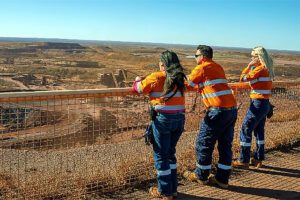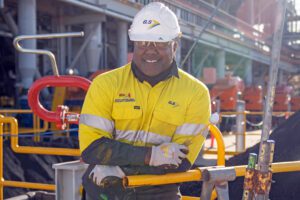What is quality training? Many have tried to define it, but with so many variables and being open to interpretation by individuals and organisations, a common outcome is invariably difficult to define.
So why is it so hard? Quality training, after all, should just mean that any training conducted by individuals, RTOs, site trainers or others is of a standard that meets the industry’s needs, conducted in a timely fashion and assessed to agreed industry standards.
Also keeping in mind the definition of competency, AQF requirements and training, and assessing standards. This should be quite easy as everything is laid out for everyone to read and follow. Couple this with trainers and assessors completing training in the training and assessing certificate program, everyone should be on common ground, or a level playing field.
But this does not seem to be the case – how many times have you heard these remarks:
- “The course is normally five days, but some people are delivering it in two days.”
- “Other providers are only charging half the normal price.”
- “Funded training is driving some providers out of business, as they cannot access the same funding.”
- “Assessment processes vary too much between providers.”
- “High-Risk Licence Assessments are out of touch and do not meet all of the industry’s needs, one size does not fit all.”
- “Training package competencies are out of touch with actual industry needs.”
- “There should be a certain number of hours attached to training programs.”
- “It is competency based – there should not be hours attached to training.”
- “Regulators do not act to resolve issues to do with complaints.”
- “Training packages are not written clearly enough so intent can be audited and action is taken where required.”
- “Who is this ‘industry’ that keeps getting mentioned when discussing training packages, audits, and regulators?”
- “A Statement of Attainment means we have no further obligation to ensure someone is competent when working for us.”
- “I am sure you can cut a day off the length of that program.”
- “Can you cut your price by 30 per cent?”
READ RELATED CONTENT
There are many more instances of why we all cannot work on a level playing field and some are as follows:
- Because we are in a competency-based environment, trainees arrive for training and may already have some form of knowledge, skills or experience, therefore that five-day program may be able to be completed in two days for this person, or an RPL may take place and we are now down to a few hours.
- Because we are competency-based, we cannot put a timeframe on a program as people may finish earlier or later than the guidelines.
- Due to this variation in time, there is then a variable cost to the customer.
As can be seen, the initial issues are caused by having a competency-based system, however, this should not be the case. There are documented processes to follow, e.g. RPL/RCC, assessment conditions, rules of evidence and industry standards.
The problems arise when rules are broken, intentionally or not, and this occurs more often than it should do. It can be seen when regulators have had to recall certificates and providers are suspended from delivery, or, in fact, actually terminated from delivering any training. These cases appear in papers and websites.
There are also providers that are not fully aware of their obligations to train and assess to the standards and rules provided. They do not understand what quality means, what their duty of care is and the consequences of training and assessment outcomes when it is not conducted in line with standards. This is why we want to be able to define what quality is, and how it can be delivered to meet all of the requirements of standards, regulators and Industry, and keep everyone on a level working field.
So instead of us trying to define quality to be able to produce the silver bullet, it is worth changing the focus to be able to meet industry demands by ensuring all systems are adhered to.
In the resources sector, industry is supposed to be driving the training agenda, therefore there should be standards set within the industry, as well as the regulators, to define what is expected of training organisations.
This is still a factor that has not progressed to any great extent in the past few years. However, as an association, we will continually work with industry to try to improve the current status and move towards a true quality system with high values and ownership, responsibilities, and measured outcomes across the board.
To that end, we can then value training everywhere, across all sectors, see the benefits of quality training, value for money and at the end of the day, the actual return on investment.
As the old statement goes, training does not cost, it pays, so everyone needs to be mindful of looking for quality outcomes, and train people to be able to conduct their tasks safely and efficiently, and return home safely after every shift.
PROFILE
ROD RAMSAY
RAMSAY TRAINING
 Rod Ramsay runs Ramsay Training and was formerly the CEO of the Resources Industry Skills Association (RISA).
Rod Ramsay runs Ramsay Training and was formerly the CEO of the Resources Industry Skills Association (RISA).














Add Comment